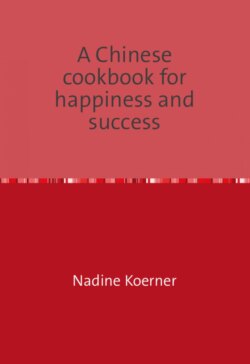Читать книгу A Chinese cookbook for happiness and success - Nadine Koerner - Страница 11
На сайте Литреса книга снята с продажи.
2.3 Chinese research results on happiness and China’s global rankings 2.3.1 Chinese definitions of happiness
ОглавлениеOn Chinese TV, one can find an increasing number of TV series and shows about ‘happiness’, whether it be ‘Tears of happiness’, ‘Sunny Happiness’ or a recent CCTV program, which asked countless people from all over China whether or not they felt happy in today's society. The show sparked much debate within China, as many people claimed that happiness is a subjective feeling which cannot be accurately assessed by respondents in front of a television camera. However, the program has led to the fact that the question, how to define happiness, got into the consciousness of many Chinese.
No wonder that ‘what does happiness mean to you?’ has become a popular question in oral English classes. English teachers in high schools encourage students to think about happiness, but viewed as an emotion. When they are asked ‘what is happiness?’ students get choices to answer the question with adjectives like ‘joyful, positive, comfortable or even sweet’. School books provide answers on what should make students happy in the form of pictures of people eating Chinese food, spending time with relatives, singing karaoke or climbing a mountain. Some teachers go further and let students discuss how they can become happy and how to understand this as a function of their own ability to increase their ‘capacity for enjoyment’. ‘The more we can enjoy what we have, the happier we are’, said one teacher, as a 18 year old student mentioned that he cannot be happy, because he has no car, apartment or money on his bank account.
The word ‘happiness’ did not appear in the Chinese language until recently; instead, the word ‘fu’ was used, which is perhaps the closest equivalent of happiness in ancient Chinese writings. However, its definition, which is very vague, usually means ‘anything positive and good in life’. In ancient times, longevity, prosperity, health, peace, virtue and a comfortable death were among the most aspired to values and achievements in life. Thus, the traditional Chinese conception of happiness roughly includes material abundance, physical health, a virtuous and peaceful life, and relief of anxiety about death. Nowadays, happiness in Chinese dictionaries is translated as “xingfu”; “xing” means “fortunate” and “fu” (福) means “fortunate, lucky, smooth and free of obstacles”. This shows that the Chinese notion of happiness is based on luck and fortune.
Recently happiness has become a political issue too and former Premier Wen Jiabao defined happiness as: "people live comfortably, feel relieved and safe, and have confidence in the future."[40] Other Chinese politicians followed this definition, which is passed on to the general population in TV shows, TV series, internet articles and other mass advertisements.
Consequently great interest aroused the question, what the general public would answer in private surveys. A survey conducted in 2013 amongst 200 Chinese private high school students with an average age of 15 years, using questionnaires, distributed by systematic sampling, showed that only 5 % had no idea how to define happiness. About 25 % defined happiness as a feeling, for 20 % happiness meant to stay with family, friends or lovers and to get support from them. Another 15 % defined it as freedom to do whatever one wants to do, and 11 % equaled happiness with contentment and satisfaction. For 5 % happiness was defined as access to good food and rest, around 2 % defined happiness as ‘no sadness’, 2 % as ‘playing computer games’, and for 8 % it was equaled with health, security, money, success and good marks.
A survey conducted in 2013 in a private company amongst 100 Chinese middle position employees with an average age of 35 years, using questionnaires, distributed by systematic sampling, showed that 25 % defined happiness as ‘being in good health’! Another 20 % defined happiness as ‘having freedom and peace with the world and oneself’, 15 % defined happiness as ‘having good relationships between family members’. 10 % defined it as ‘having one’s wants satisfied’. 5 % had no idea about the definition and were looking for happiness, 5 % thought good income would equal happiness, and 5 % defined happiness as ‘making best use of one’s talents’.
